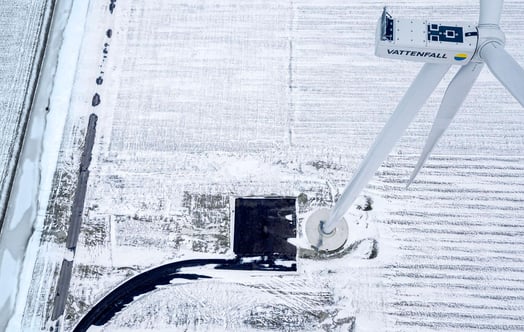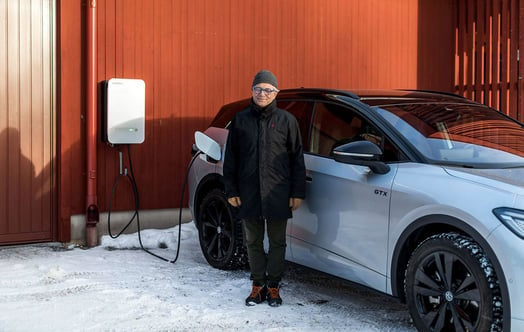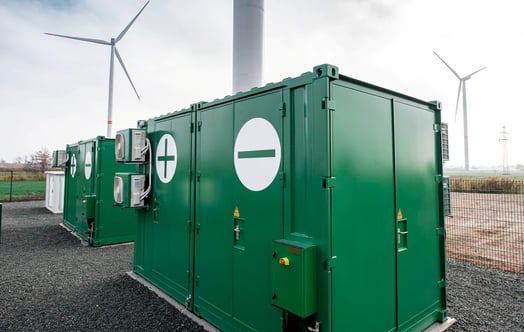A buzzing after-work event called HållBAR is turning climate talk into action, uniting people from all walks of life to swap ideas, bust myths, and spark new partnerships for a sustainable future. The place is Stadshallen in Lund, Sweden, and this is where casual conversation meets real change – one gathering at a time.
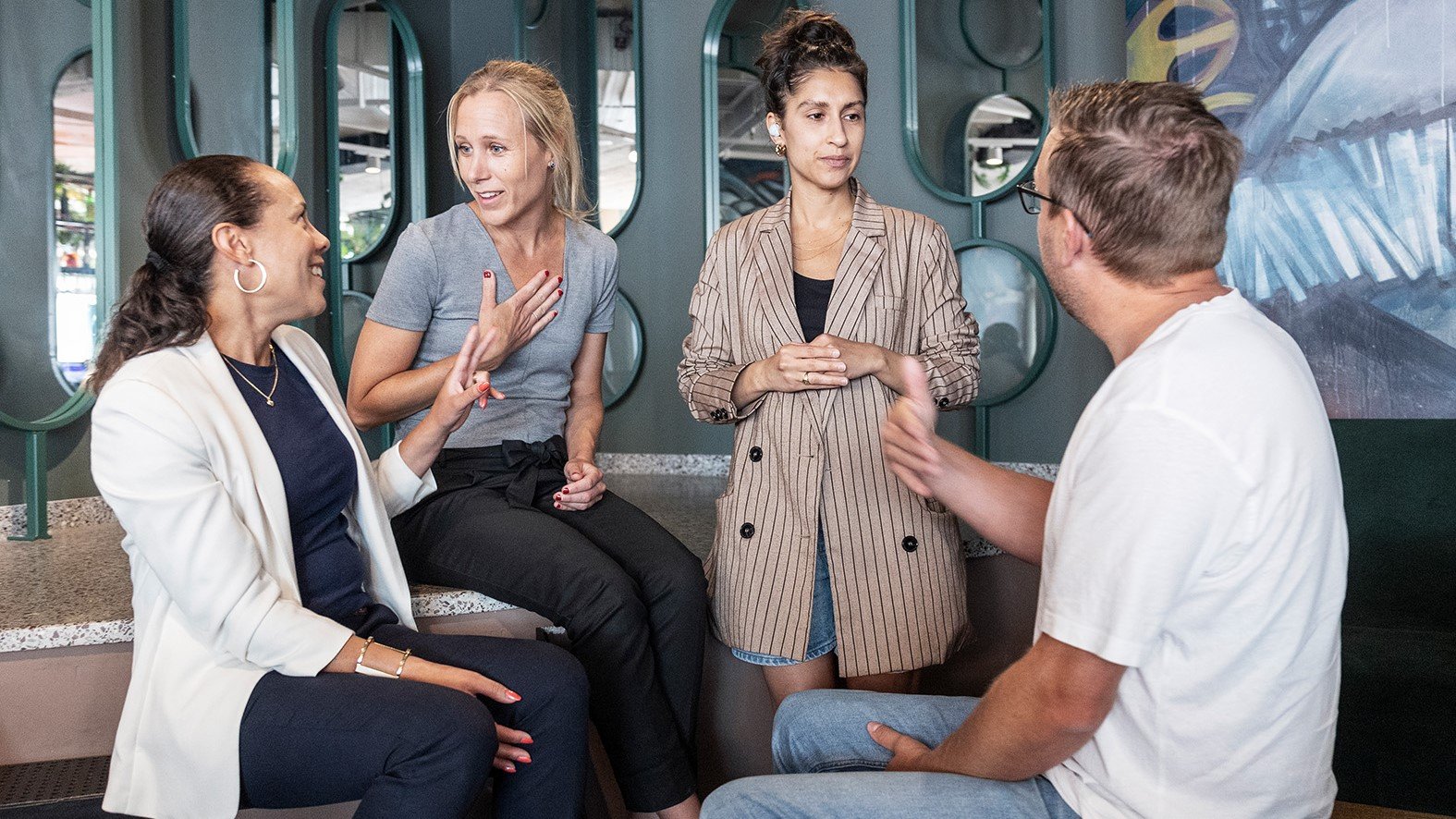
The sound of people discussing fills the air at Stadshallen in Lund, southern Sweden. Eager questions like, "How can ordinary people meet climate goals when large companies don't take responsibility?", "What can I, as an individual, do to make the city more sustainable?", and "Hey, do you also work with recycling, shall we collaborate?", bounce between the many standing tables.
It's Friday just after the workday and around a hundred people have gathered to discuss their shared interest: climate issues. They are here either out of curiosity about the current status of climate efforts, to seek partners for climate collaboration, or to express their concerns about the slow pace of change. No question is too big or small to share with tablemates for the evening. The event is free and open to all.
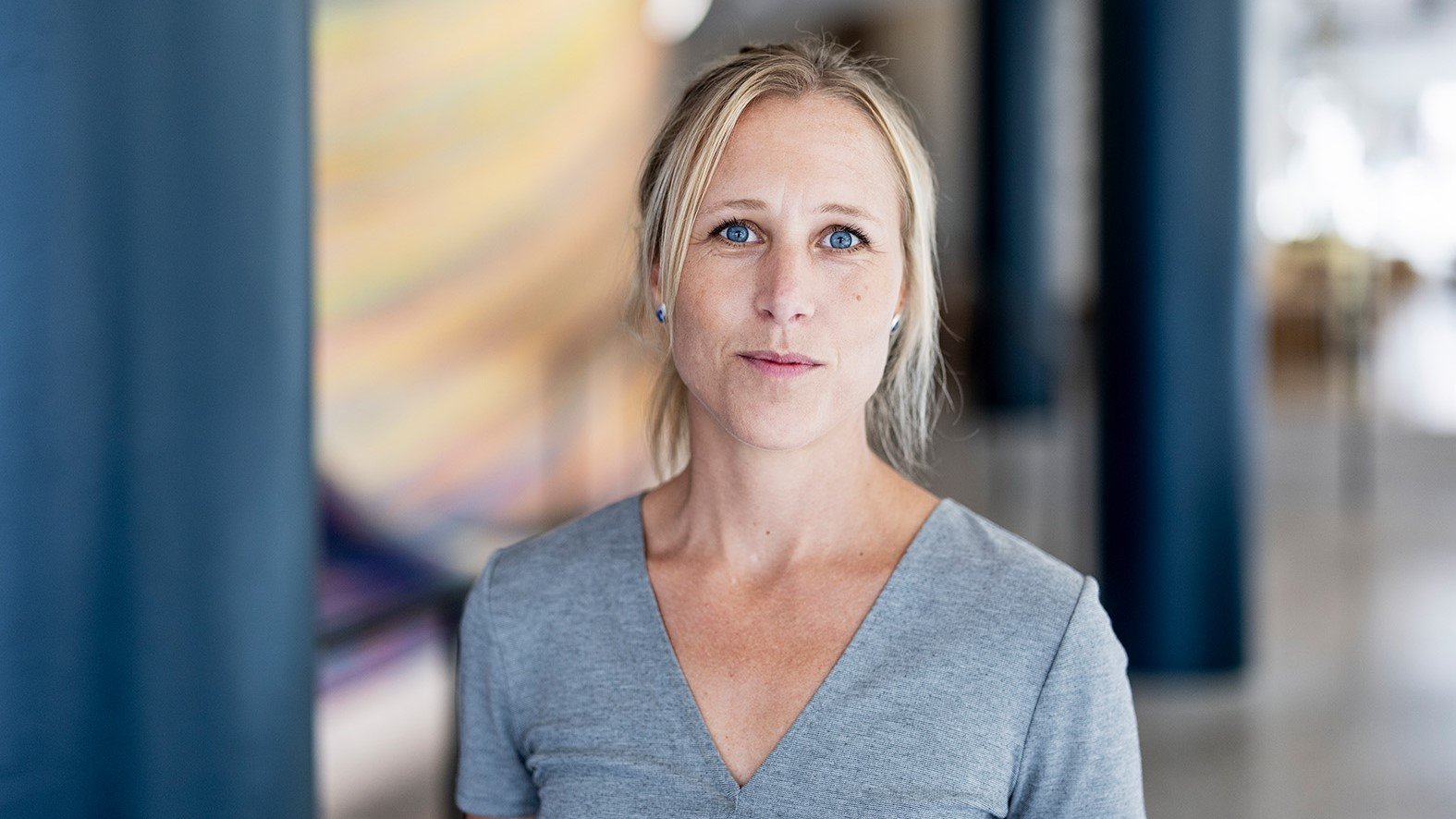
Mira Norrsell, environmental and sustainability strategist for the city of Lund and the initiator and facilitator of the event, explains:
"It is a non-political, non-profit forum that brings people together to talk about living more sustainably and adapting to our changing climate. It’s especially valued as a place to discuss how we can act together? Here, business leaders, private individuals, and politicians meet as peers outside of work."
The concept, called HållBAR*, started modestly in 2020 when Mira Norrsell emailed a few colleagues working on sustainability issues in Lund. The idea was to collaborate rather than work in isolation. They met at a local pub, and about thirty people showed up. The event quickly grew by word of mouth, and demand for more gatherings rose. The pandemic brought a sudden halt, but once meeting restrictions in Sweden lifted in 2022, Mira moved HållBAR to Stadshallen in Lund, where it now regularly fills to its hundred-person capacity.
Why discuss climate issues at an after-work event?
"It’s an unpretentious setting. It's simple and fun. Some just listen to our opening lecture, but those who stay longer start talking. I’ve met many who have found new partners focused on the environment and climate thanks to these events. It’s meant to feel like you can do something concrete and important for the climate", Mira shares.
Each meeting follows a similar pattern, starting at 5:00 PM with a half-hour panel discussion or lecture on a specific theme, often co-organized with researchers from Lund University. Afterwards, the floor opens for mingling and conversation, with attendees able to buy food and drinks. Topics so far have included artificial intelligence, biodiversity, the sharing economy, and Inner Development Goals (IDG). Occasionally, there’s even stand-up comedy themed on sustainability.
The primary goal of HållBAR, according to Mira, is to instill hope.
“Our non-political stance is a plus because it means no one is hindered by or has to relate to a specific agenda. We focus solely on the important issues, fostering collaboration and creating new partnerships for sustainable solutions. Being active and informed makes you more aware and less anxious—and that’s more constructive."
Knowledge sharing and factual information about the climate dispel persistent myths. This importance is underscored by more people acknowledging it as a way to combat unnecessary worry and resignation. For instance, a recent report by Fossil Free Sweden ((https://www.kunskapsglappet.se/) highlighted that while many Swedes believe EU greenhouse gas emissions are increasing, they have actually decreased by 30 per cent between 1990 and 2021. Similarly, the belief that electric vehicle batteries are prohibitively expensive remains widespread even though they are now 90 per cent cheaper than in 2010.
Being active and informed makes you more aware and less anxious—and that’s more constructive.
A study by the Yale Program on Climate Change Communication (https://climatecommunication.yale.edu/publications/climate-change-in-the-american-mind-beliefs-attitudes-spring-2024/) discovered that discussing global warming at least once a month makes people feel more politically effective, defined as the confidence citizens have in their ability to influence government and political affairs. This sense of efficacy is vital for a healthy civil society.
The increasing popularity of Climate Cafés, founded in 2015 by Jess Pepper after participating in Al Gore's Climate Reality Project, https://www.climaterealityproject.org/ , demonstrates a strong desire and need for climate change discussions. She started in her hometown in Scotland to provide an informal platform for community members to meet over a cup of tea and a biscuit. Now it is a global movement featured at international climate summits like COP26 and COP28.
Mira Norrsell’s aim was more or less the same as Pepper’s, she just changed from tea and cakes to after-work meetings, which was just as appreciated – the strong demand speaks for itself.
"People are already asking, 'When is the next one?' It has become a valued hub for gathering and feeling community when climate issues seem too daunting for individuals."
*HållBAR, a pun on the Swedish word for sustainability, where "bar" means... yes, a bar!
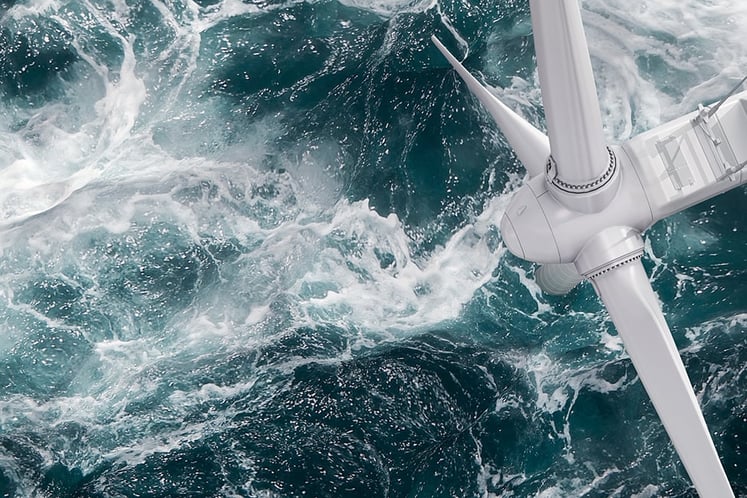
Subscribe to the newsletter THE EDIT
THE EDIT is Vattenfall's new monthly newsletter. Each issue highlights a new burning issue from the world of sustainable energy and fossil freedom.


